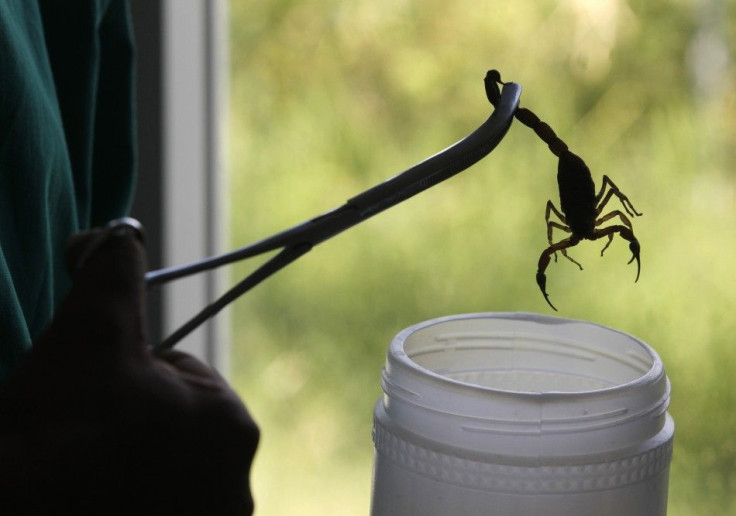Woman Dies After Black Scorpion Sneaks Under Blanket, Stings Her
A woman has died in Zimbabwe after a venomous black scorpion sneaked under her blanket and stung her.
The incident took place in the Ndali area of Chiredzi Tuesday night. The woman, identified as 48-year-old Flora Munorwei, was sleeping alongside her husband outside their hut to get some fresh air when the scorpion sneakily crawled under her blanket and bit her, reported The Herald.
The victim woke up feeling excruciating pain on her left shoulder and found out a venomous black scorpion had just stung her.
Her health deteriorated quickly, but she still managed to awaken members of her family. They killed the scorpion and brought the woman to a clinic in a wheelbarrow. However, the woman died two hours later while receiving treatment, according to Zim Eye.
Doctors confirmed there was a black mark on her shoulder where she had been stung by the scorpion. Her body was then sent to another hospital for an autopsy, the results of which are not yet available.
Children and older adults are at most risk of serious complications related to scorpion stings. Initial signs of a scorpion sting may include intense pain, numbness and swelling, while symptoms related to widespread venom include difficulty breathing, sweating, high blood pressure, accelerated heart rate and muscle twitching.
Those who live in areas where scorpions are common can avoid contact with them by taking certain precautionary measures like not storing firewood against their home, removing piles of rocks around the house and pruning bushes and keeping the grass mowed. They are also advised to inspect clothing, boots and gloves that have been stored for a while before using them and install weatherstripping around doors and windows.
Last week, at least three people were killed and more than 450 others were stung by scorpions in Egypt's southern city of Aswan. The predatory arachnids were reportedly washed into the streets and homes due to severe thunderstorms in the area. Residents were told to avoid going to mountainous regions during the swarm as scorpions often choose shelter in particularly higher elevations to seek refuge from the extreme weather conditions.






















